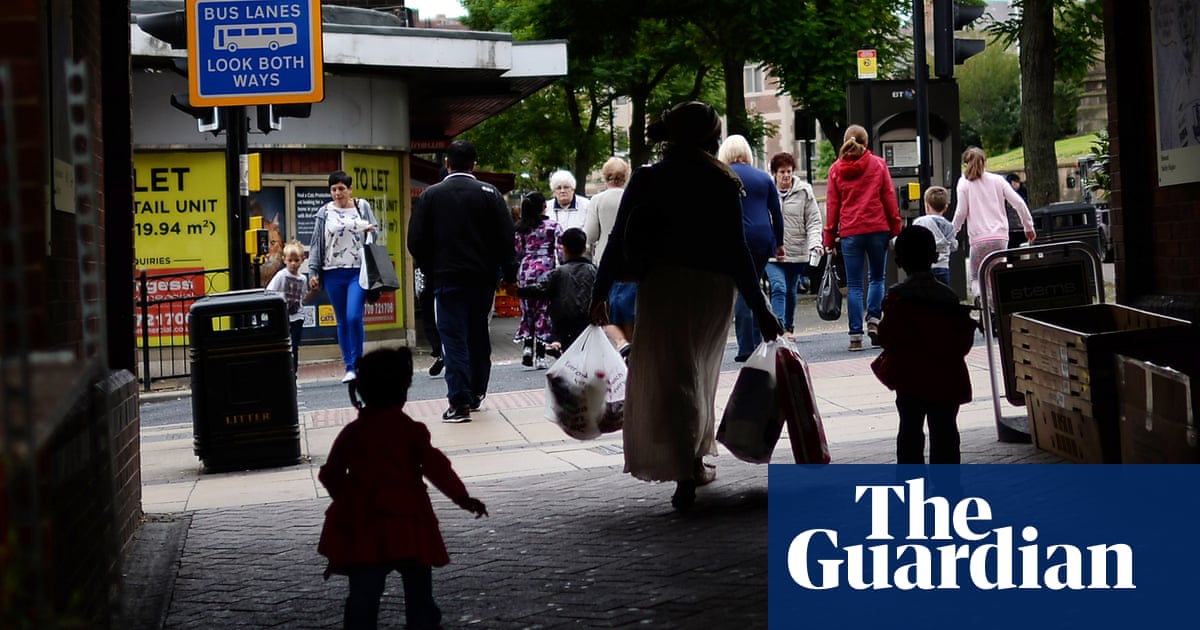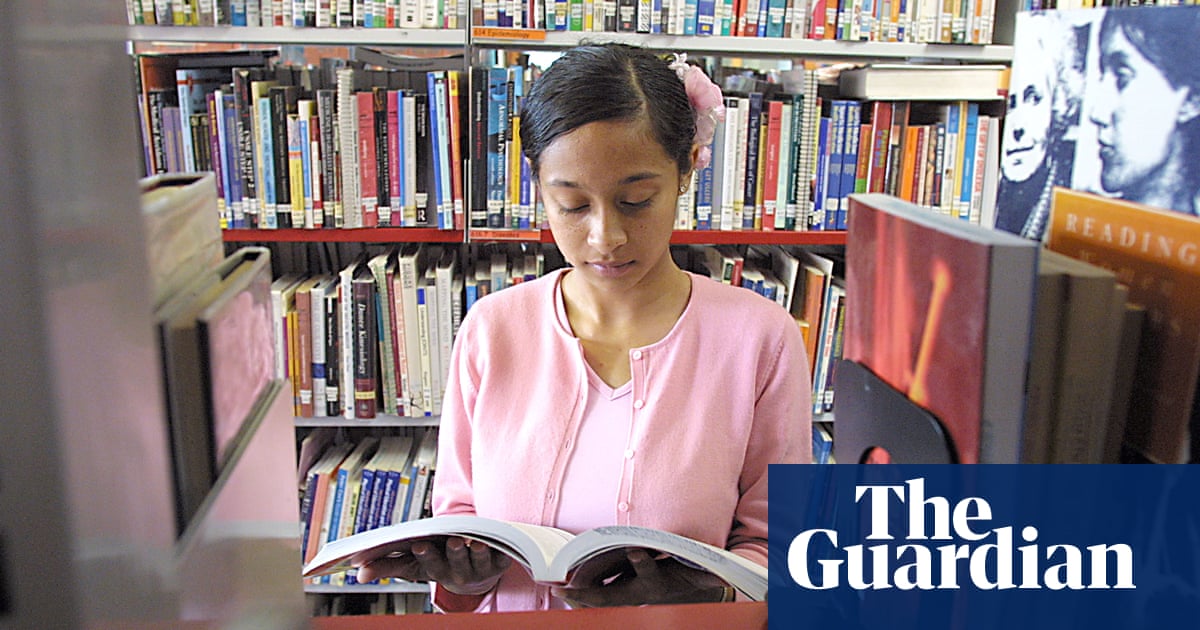
More than 1 million children experienced destitution last year – meaning their families could not afford to adequately feed, clothe or clean them, or keep them warm – according to a major study which reveals an explosion of extreme poverty in the UK.
Severe material hardship was “no longer a rare occurrence”, the study found, with rates of destitution more than doubling in the last five years as a result of benefit cuts and cost of living pressures, leaving struggling households increasingly reliant on regular charity handouts.
Poverty campaigners, teachers and frontline welfare workers have expressed growing alarm about the damaging effects of destitution, particularly on children, including physical ill health, undernourishment, mental illness, social isolation, school absences and poor classroom behaviour.
An estimated 1.8m UK households containing nearly 3.8 million people, including 1 million children, were destitute at some point in 2022, according to the study, published by the Joseph Rowntree Foundation (JRF). Half of destitute households tried to get by on less than £85 a week after housing costs, with a quarter reporting no income at all.
JRF’s chief executive, Paul Kissack, criticised the government for in effect ignoring the rise in destitution. “The government is not helpless to act; it is choosing not to,” he said. “Turning the tide on destitution is an urgent moral mission, which speaks to our basic humanity as a country, and we need political leadership for that mission.”
A co-author of the study, Prof Suzanne Fitzpatrick, of Heriot-Watt University, described soaring destitution as “morally reprehensible” and said the UK state had abdicated its responsibility to society’s poorest. “There must be immediate action from all levels of government to tackle this social emergency,” she said.
Destitution is defined as the inability to meet basic physical needs to stay warm, dry, clean and fed, either because of a lack of clothing, heating, shelter or food, or because household income falls below a minimum level after housing costs – ranging from £95 a week for a single adult to £205 a week for a couple with two children.
The study, the latest in a series tracking the phenomenon since 2015, also interviewed people about their experiences of destitution. It found:
Adults reported a frequent inability to afford more than one meal a day, often going without to ensure their children could eat. Nearly two-thirds (61%) said they had gone hungry in the past month. There was heavy reliance on food banks or relatives for groceries.
More than half of destitute adults (51%) regularly went without toiletries such as shampoo and toothpaste, as well as hygiene and cleaning products, often relying on food banks for these items. One respondent had to borrow money to buy incontinence pads for her disabled daughter.
New clothing and footwear “were essential items that people simply did not buy at all”, the study concluded, with many adult respondents wearing worn-out clothes, and only buying new clothes – such as school uniforms and trainers – for their children.
Destitution – once largely limited to immigrants ineligible for social security support – was now predominantly experienced by UK nationals in receipt of welfare benefits, and increasingly by families, the study revealed. One in 10 destitute households included working adults.
Disabled people and people with long-term chronic health conditions, and Black British, Caribbean and African households, were disproportionately likely to be destitute. The number of destitute lone parents almost tripled between 2019 and 2022, while the number of children experiencing destitution has tripled since 2017.
The erosion of state support for people in severe hardship, and their growing reliance on informal help from charities and parents, was one of the most striking aspects of the research, the study said. More than 574,000 destitute people were supported by food banks in 2022, up from 214,000 in 2019.
The study noted the critical role of volunteer food banks in the lives of the poorest households despite concern over their ability to meet rising demand. One charity worker told researchers: “We used to worry about food banks opening. Now we’re worrying about food banks closing. That’s how bad it is in our country right now.”
Meagre benefit rates meant a single adult on the basic £85 weekly rate of universal credit was by definition in severe hardship, falling below the £95 a week destitution threshold, the study said. The two-child benefit limit and benefit sanctions also drove destitution. The UK social security system was “full of holes”, it concluded.
The JRF called on all political parties to commit to a plan to eradicate destitution, including an overhaul of benefit rates to provide an “essentials guarantee”, which would ensure universal credit was sufficient to protect households from severe hardship.
A government spokesperson said: “Our number one priority is driving down inflation because that will help everyone’s money go further.
“There are 1.7 million fewer people in absolute poverty than in 2010, including 400,000 fewer children, but we know some families are struggling, which is why we are providing support worth an average of £3,300 a household, including raising benefits by over 10% this year, and are increasing the national living wage again.
“To help people out of poverty through work, we are also investing £3.5bn to help thousands into jobs and are removing barriers for parents with the biggest ever expansion of free childcare – providing 30 free hours of childcare for working parents and support for children from nine months old to when they start school. This will save eligible parents up to an average of £6,500 a year.”
‘I often wake up hungry at 3am’
“What’s destitution like? A complete nightmare!” says Clare Willsher, who lives with her husband and two teenage boys in Bexleyheath, south-east London. She is quite matter-of-fact about it: life has often been pretty tough, but never this tough.
Soaring energy and food costs over the last two years coincided with her husband getting cancer and having to give up work. They had personal debts, and their household income shrank just as their outgoings went through the roof.
Universal credit pays the rent on their private rented home, but the basic allowance meant for living costs will not stretch to a whole month. The family gets disability benefit for the boys, without which, she says, they would be totally scuppered.
Putting food on the family table takes time and ingenuity. A weekly grocery budget of £35 has to be supplemented with trips to food banks. Some weeks, when other bills have to be paid, she has had as little as £10 for food.
She and her husband regularly skip meals – “we never have three meals a day” – to ensure the boys always have enough to eat. But going without is hard: “I often wake up hungry at three in the morning,” she says.
Last winter was miserable, she recalls, as the cost of energy meant they could rarely afford to put the heating on, even when it was freezing. Sometimes they switched it on because it was the only way to dry the boys’ school uniforms.
The inability to afford things they used to take for granted can be demoralising, she says. She and her husband recently went out for a token one drink to celebrate their wedding anniversary. “It left us skint,” she reflects, with a hint of regret.












